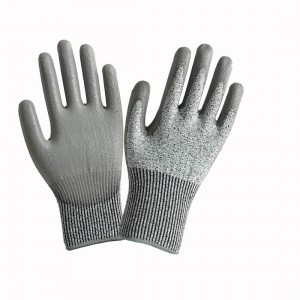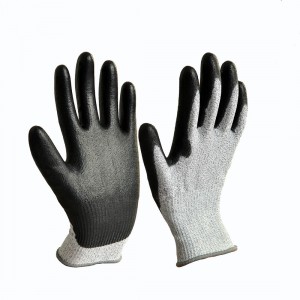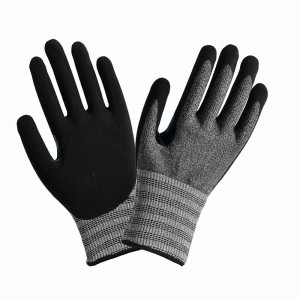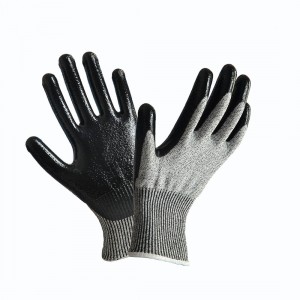Functions
1. Anti-cutting gloves have excellent anti-cutting performance, flexibility, good air permeability.
2. The main material is composed of HPPE or steel wire, nylon, polyester, etc., which makes it safety and non-toxic.
3. It has great anti-cutting and wear resistant performance.
4. Although these gloves are quite generous in size, you still want to make sure they fit well. If you can't get the gloves on your hands, then they won't protect your hands very well. Your gloves need to fit snugly to maintain flexibility while not being so tight as to cut off blood circulation.
5. Several protective glove options have coatings on the fingers, thumb and palm. It can be a full solid layered coating or a spot coating. Uncoated gloves are the most dexterous, but have the least grip. A spotted glove maintains a balance between grip and dexterity. Fully coated gloves provide maximum grip but also sacrifice comfort and dexterity.
6. Increased confidence. You will find that when wearing protective gloves, you will have more confidence. This will allow you to focus more on the task at hand rather than on keeping your hands safe.
Other Considerations
1. Non-conductive. If you are going to be working in an electrically hazardous environment and also touching sharp objects, then you need non-conductive gloves. This will prevent the gloves from conducting electricity and possibly delivering an electric shock or injuring you. Look for gloves that have a silicone or rubber coating that separates the metal in the glove from the electrical current.
2. Silicone-free. In some settings, silicone can be harmful. This may be because of chemicals, paints or other liquids. In these cases, you'll want gloves that both protect sharp objects and are silicone-free to prevent unwanted chemical reactions between the glove and the project you're working on.
3. Flame and heat resistant. Metal provides protection against sharp objects; however, it does not protect against heat exposure. This means that gloves can be harmful when working near flames or high temperatures. In this case, you will need flame- and heat-resistant gloves to keep your hands cool while handling sharp objects.
Applications
1. Glass processing
2. Petrochemical industry
3. Metal processing
4. Construction
5. Maintenance
Certificates
1.CE certification
2.ISO certification



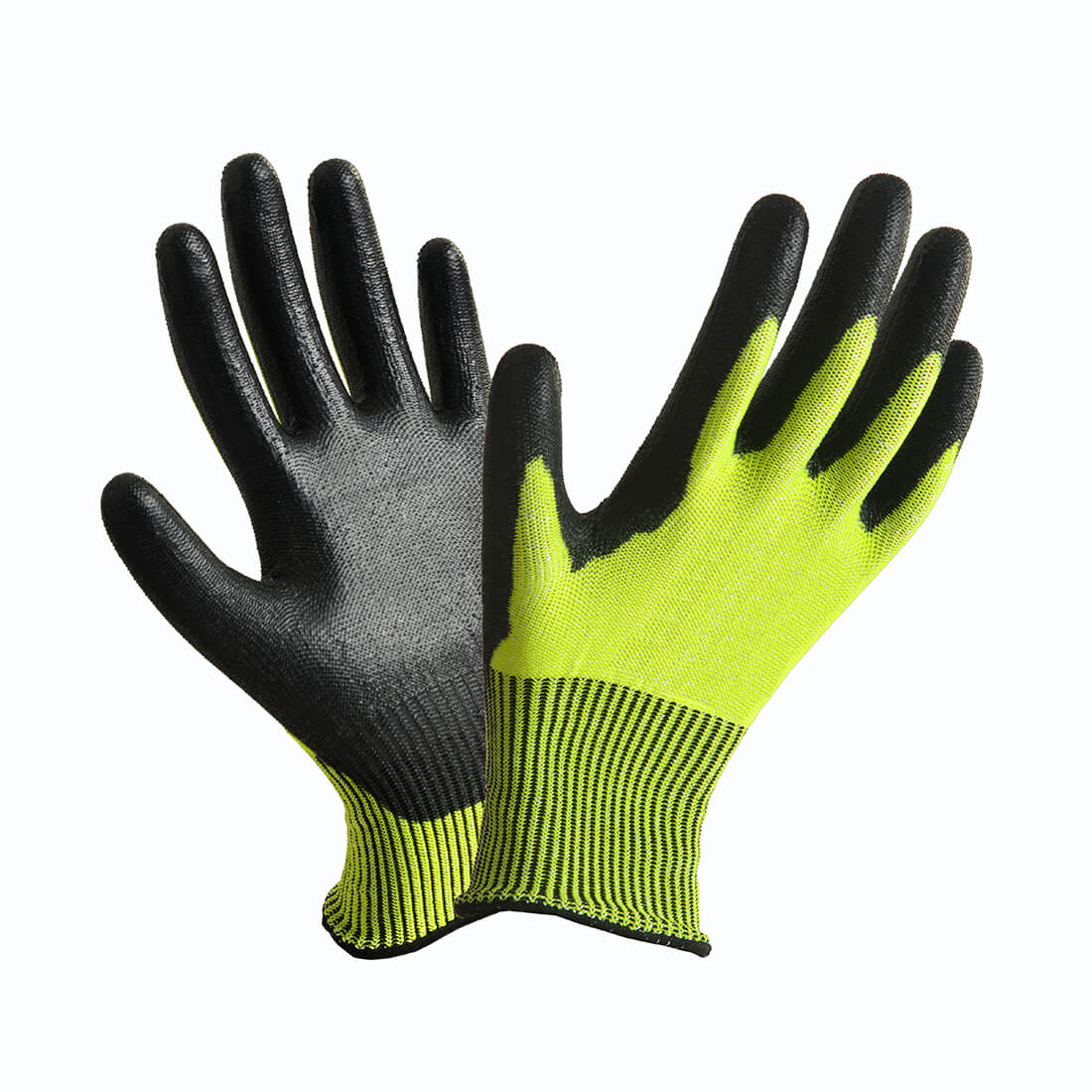

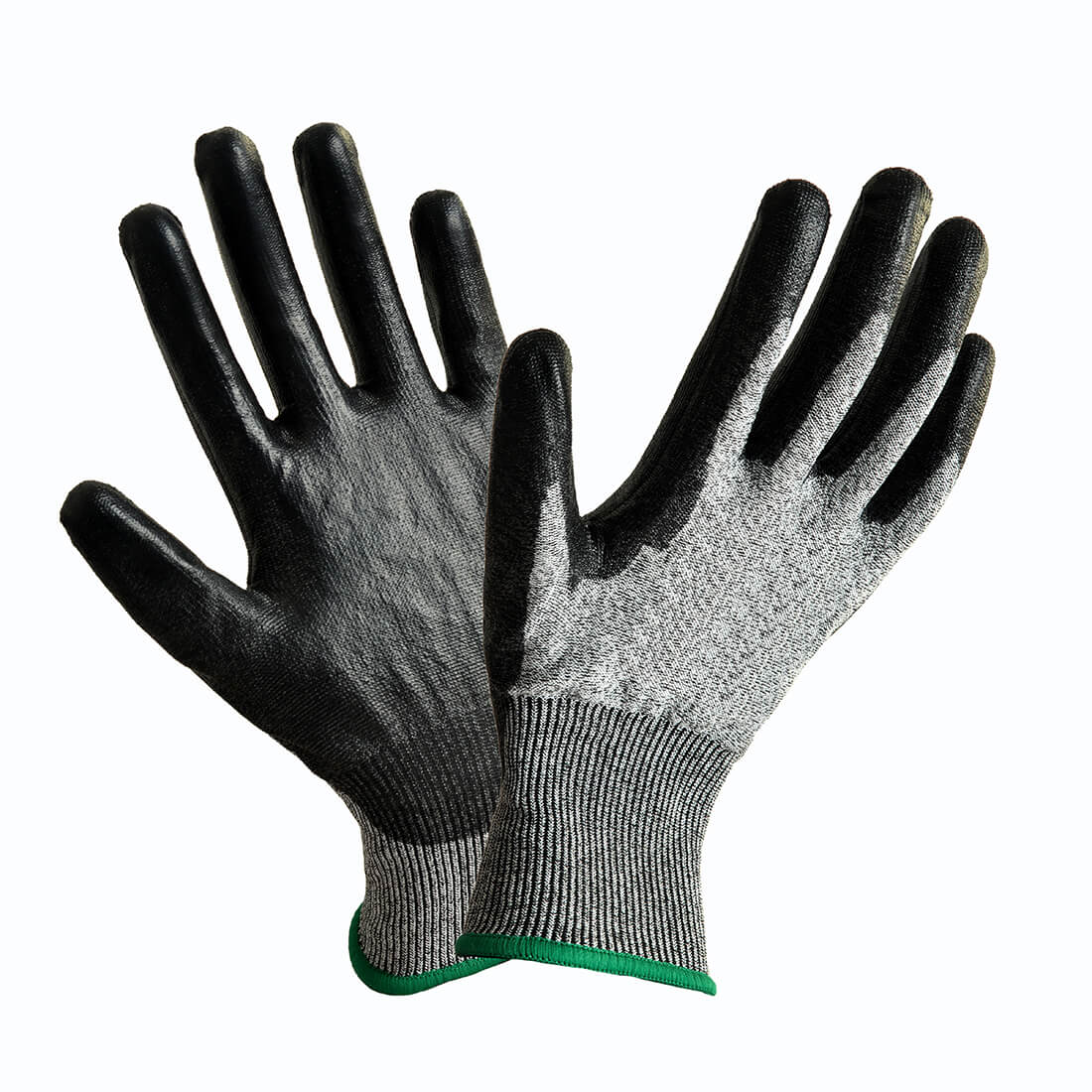
-
Price Sheet for China Working Safety Latex Foam...
-
Supply OEM/ODM China Fashion Design Latex Coate...
-
13-gauge carbon fiber liner PU coated gloves
-
Special Price for China 13G Hppe Cut Resistant ...
-
Cut resistance gloves, latex palm coated
-
Cut resistance gloves,nitrile coated

